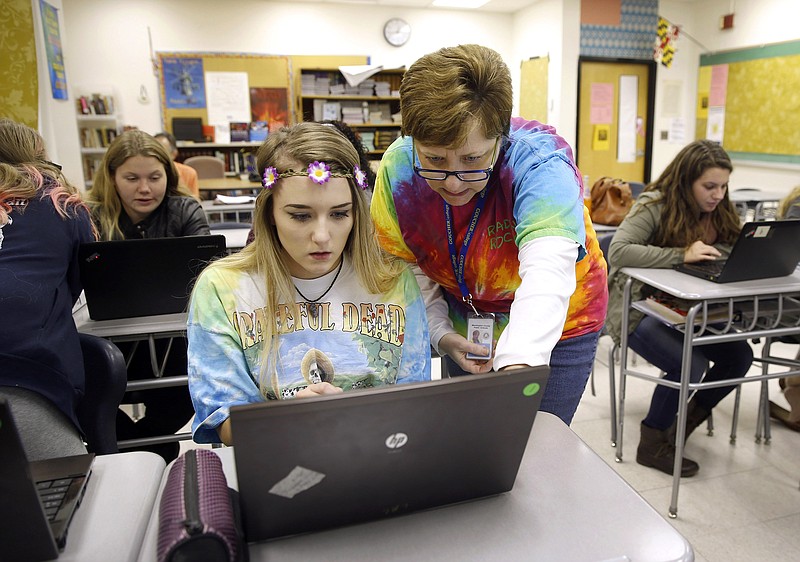NEW YORK (AP) - That electoral elephant in the room threatening political tension this Thanksgiving? StoryCorps believes it could be a unifying main course.
The oral history project's "Great Thanksgiving Listen 2016" is urging Americans, particularly teens, to use the holiday weekend to record a conversation with a grandparent or another elder on their feelings about the election, their hopes and fears for the country and their thoughts on how to bring people together in a time of division.
Dave Isay, StoryCorps' founder and president, said the project could strengthen ties across the country when the chasm is deep.
"We're living in a moment where the divide is just so massive," and the discussions will give people a chance to reflect on what happened in the last two weeks, he said. "I can't think of anything more important right now than listening to each other and finding a way forward."
StoryCorps debuted the Thanksgiving project last year, prompting intergenerational conversations just as this time around, though without the election theme. The result was staggering: more than 50,000 recordings, as many as StoryCorps amassed in its first decade of operation combined.
The "Great Thanksgiving Listen" is partnering with organizations including the American Federation of Teachers and the National Education Association, as well as school districts and educators in all 50 states, many of whom will assign a conversation to students. The hope is to meet or exceed the volume of recordings from 2015.
Anyone at least 13 years old is invited to take part in the "Great Thanksgiving Listen" by downloading the StoryCorps app and inviting someone to take part. Isay said throughout StoryCorps' history, people have delved into the most personal and tense moments of their lives: "We've never seen one of these conversations go wrong."
Stories have popped up around the country of people dreading a Thanksgiving spent with relatives with different political leanings than their own, and of the fraught political divide prompting some to skip the holiday altogether. StoryCorps conversations aren't aimed at diving into the particulars of the political debate, but simply listening to the feelings of another. Because of that, and because the conversation is generally between two people who love and respect each other, Isay said there's little risk of acrimony.
"They're not talking about political issues," he said, "they're talking about the people they care about."
StoryCorps was founded in 2003, and for most of its existence, participants went to a recording booth to share their story. After winning a TED Prize last year, though, StoryCorps launched an app that allows people to record and upload their conversations from anywhere, with the files being preserved by the Library of Congress.
Isay says his 13 years working on his brainchild have left him more hopeful than ever, and that this week's conversations could be an example across the country. "It's time that the bubbles start to break and we start to listen to each other again and recognize how much we have in common," he said.
___
Sedensky can be reached at msedensky@ap.org or https://twitter.com/sedensky
